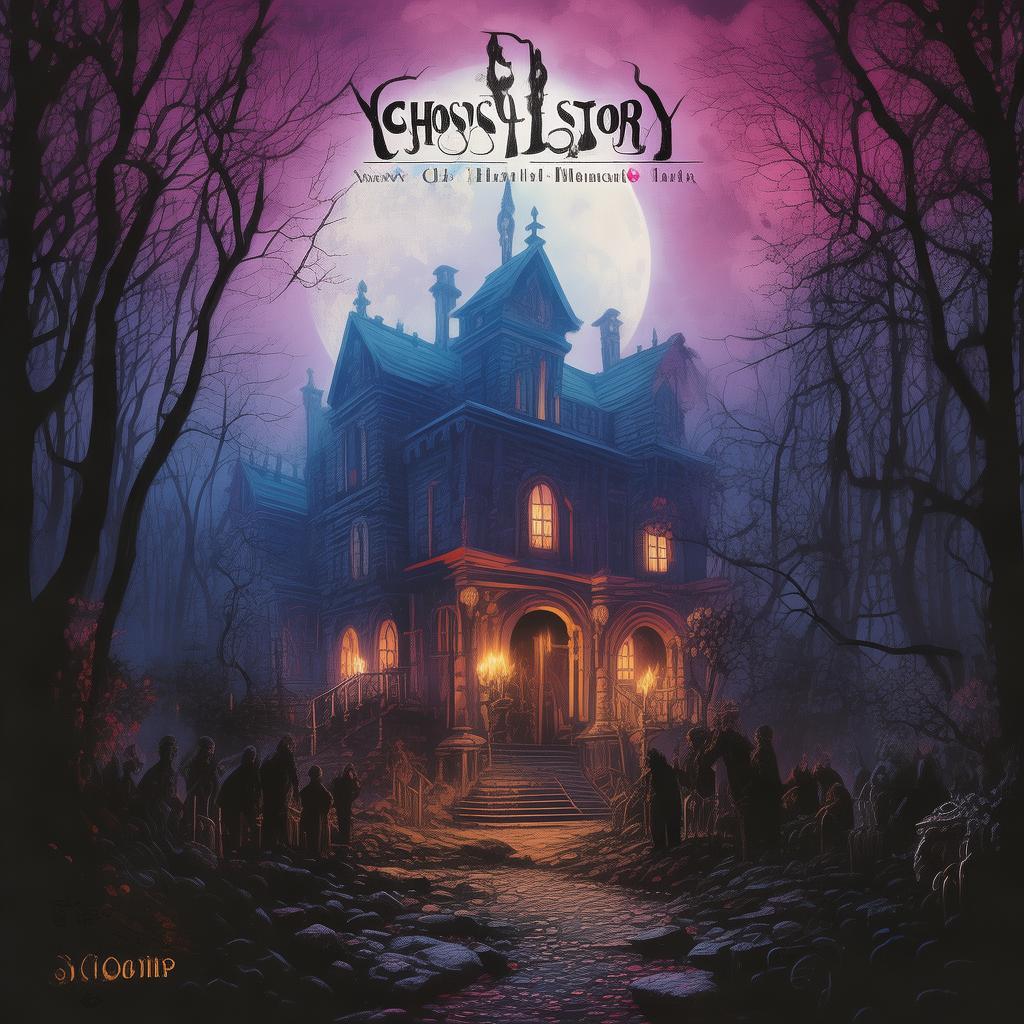The Lurking Echoes of the Silent Cinema
The old cinema, with its peeling paint and faded posters, stood at the edge of town, a relic of a bygone era. The marquee, long since removed, had been replaced by a rusted sign that read "The Silent Echoes." It was a place where time seemed to stand still, a sanctuary for those who sought solace in the art of silent cinema.
Lila, a young actress with a hauntingly beautiful face, had recently taken a job at the theater. She was drawn to the place, its air thick with the scent of dust and the memory of forgotten stories. But as she began to work the night shift, she found herself haunted by an inexplicable sense of dread.
One evening, as the last patrons filed out, Lila was left alone with the theater. She wandered through the rows of seats, the silence echoing her every step. She reached the back of the theater, where the projection room was a labyrinth of gears and shadows. There, she found a dusty reel of film, half-buried beneath a pile of old equipment.
Curiosity piqued, Lila unwound the reel and inserted it into the projector. The room was plunged into darkness, save for the flickering light of the film. As the projector hummed to life, Lila's breath caught in her throat. The film was an old silent drama, a story of love, betrayal, and tragedy.
The scene began with a young woman, her face alight with joy, as she danced with her beloved. The next moment, she was lying in a pool of blood, her lover standing over her, a knife in his hand. The audience gasped, but Lila was frozen, her eyes wide with horror.
The film continued, the story of the young woman's untimely death becoming more and more real. Lila felt a chill run down her spine, as if the spirit of the woman was reaching out to her across the years. She watched, mesmerized, as the woman's ghost appeared on the screen, her eyes filled with sorrow and anger.
The film ended with the woman's ghost vanishing, leaving Lila in a state of shock. She spent the night watching the film over and over, each time feeling more connected to the woman's spirit. She began to dream of her, her face haunting her sleep, her voice whispering secrets she couldn't quite understand.
Lila's behavior began to change. She became more withdrawn, her eyes often filled with tears. She spoke of the woman's story, as if she were reliving it herself. The other employees at the theater grew concerned, but Lila dismissed their worries, claiming it was all part of her research.
One night, as Lila watched the film for the hundredth time, she noticed something new. The woman's ghost was no longer just a silent observer; she was interacting with the characters, guiding their actions, even saving them from certain death. Lila realized that she had become the medium through which the woman's spirit could communicate with the world.
The woman's ghost told Lila her story, a tale of love lost and a crime never solved. She spoke of her love for her husband, who had betrayed her, and of the pain that had driven her to her death. Lila listened, her heart aching for the woman's suffering.
As the days passed, Lila became more and more obsessed with the woman's story. She began to act out scenes from the film, her own face mirroring the expressions of the woman on the screen. She felt a strange connection to her, as if they were two lost souls, bound together by the film that had brought them together.
One evening, as Lila was performing a scene from the film, the woman's ghost appeared before her. She was dressed in the same clothes as in the film, her eyes filled with tears. "You must help me," she whispered. "My husband is still alive, and he must pay for what he has done."
Lila knew that she had to act. She began to search for the husband, using clues from the film and her own intuition. She followed him to a secluded cabin in the woods, where she found him in the act of preparing to dispose of a body.

Lila confronted him, her voice steady despite the fear that gripped her. "You cannot escape your past," she said. "The woman you killed is still with you, haunting you. You must face the truth and pay for your crimes."
The husband, realizing the truth of Lila's words, broke down. He confessed to his wife's murder and agreed to turn himself in. Lila, feeling a sense of relief and closure, watched as the police arrived to take him away.
The woman's ghost appeared once more, her face filled with gratitude. "Thank you," she said. "You have freed me from my prison." With a final, sorrowful glance at Lila, she vanished, leaving the theater once more.
Lila returned to her life at the theater, her mind cleared of the haunting. She no longer felt the pull of the woman's spirit, and the film no longer held the same power over her. She realized that the experience had changed her, had given her a sense of purpose and a deeper understanding of the human condition.
The Silent Echoes of the theater remained a place of mystery and intrigue, a place where the past and the present collided. Lila, now a more compassionate and thoughtful person, continued to work there, her eyes often drawn to the dusty reel of film that had once haunted her.
And so, the story of the woman and her ghost remained, a silent testament to the power of love, loss, and redemption, a haunting reminder that the echoes of the past can still be heard in the present.
✨ Original Statement ✨
All articles published on this website (including but not limited to text, images, videos, and other content) are original or authorized for reposting and are protected by relevant laws. Without the explicit written permission of this website, no individual or organization may copy, modify, repost, or use the content for commercial purposes.
If you need to quote or cooperate, please contact this site for authorization. We reserve the right to pursue legal responsibility for any unauthorized use.
Hereby declared.









